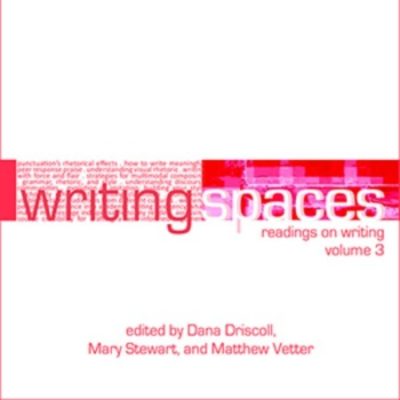12 Dan Melzer’s “Understanding Discourse Communities”
Writing Spaces Volume 3
When you complete a writing assignment, deciphering the goals and expectations of that assignment is one the most important and difficult steps in that writing process. One way to better understand what an assignment, a class, or even a job is asking from is to examine the assignment in the context of its “discourse community.” In this chapter, Dan Melzer not only describes what a discourse community is but also how understanding that concept can aid us as writers and beyond.
“You can write in a journal alone in your room, just like you can play guitar for yourself along in your room. But most writers, like musicians, learn their craft from studying experts and becoming part of a community. And most writers, like most musicians, want to be a part of community and communicate with other people who share their goals and interests.”
MLA Citation Examples
Works Cited
Melzer, Dan. “Understanding Discourse Communities.” Writing Spaces: Readings on Writing Volume 3, edited by Dana Driscoll, Mary Stewart, and Matthew Vetter, Parlor Press, 2020, pp. 100-115.
In-text citation
“You can write in a journal alone in your room, just like you can play guitar just for yourself alone in your room. But most writers, like most musicians, learn their craft from studying experts and becoming part of a community. And most writers, like most musicians, want to be a part of community and communicate with other people who share their goals and interests” (102).
APA Citation Examples
References
Melzer, D. (2020). Understanding discourse communities. In Dana Driscoll, Mary Stewart, and Matthew Vetter (Eds.), Writing Spaces: Readings on Writing, vol. 3 (pp. 100-115). New York: Parlor Press.
In-text citation
“You can write in a journal alone in your room, just like you can play guitar just for yourself alone in your room. But most writers, like most musicians, learn their craft from studying experts and becoming part of a community. And most writers, like most musicians, want to be a part of community and communicate with other people who share their goals and interests” (p. 102).
Chicago Citation Examples
Bibliography
Melzer, Dan. “Understanding Discourse Communities,” in Writing Spaces: Reading on Writing Volume 3, ed. Dana Driscoll, Mary Stewart, and Matthew Vetter, (New York: Parlor Press, 2020), 100-115.
In-text citation
“You can write in a journal alone in your room, just like you can play guitar just for yourself alone in your room. But most writers, like most musicians, learn their craft from studying experts and becoming part of a community. And most writers, like most musicians, want to be a part of community and communicate with other people who share their goals and interests” (Melzer, 2020, 102).


